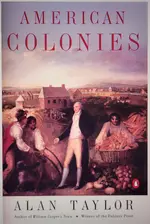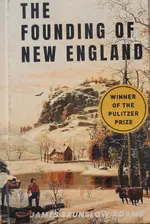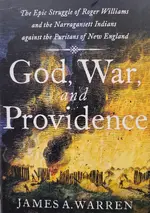- Joined
- Mar 30, 2020
- Messages
- 511
- Reaction score
- 3,614
- Golden Thread
- 0
- Primary Interest:
- All Treasure Hunting
I read around 10 books per year, mostly history hardcovers that are either Pulitzer Prize or National Book Award winners. I picked my way through most of the Oxford American History Series over the past two years. I say picked because these books are real thumpers in length. I've read extensively about the colonial period, the American Revolution, and biographies of the founders. Plus all of the presidents through Jackson. The town where I have lived for the past 30 years was first settled in 1648 by emigrants mostly from Lynn, MA. Reading early colonial histories helps me to understand some of the artifacts I find, the where to search and why. Plus it helps me to feel connected to the finds and they mean a lot to me knowing the background stories. I can go weeks without a significant find, then bask in joy when I pull up a 1700's copper or silver reale. I know their target numbers and typical depth, so I pretty much know before I sink my shovel. All of the other materials fascinate me as well: the buttons, shoe buckles, lead balls, and thimbles. The big iron hinges and horse shoes.
Eastern Long Island had a sphere of influence closest to New England, more so than with New York City and the Hudson River. Finding CT coppers from the few brief years they were minted demonstrates the connection. The British pretty much knew the population and resource locations before the Rev. War broke out. As soon as Washington was defeated by the massive British armada and army right out of the gate, the British settled in and used the island as a base and supply depot. Two groups of Hessians were stationed in the east for the duration of the war, and the population was split between loyalists and patriots. Although many patriots fled to CT when news of Washington's defeat reached here. As whalers and fishermen, CT was a good base for them to harass British shipping with smaller, lighter boats.
I just finished "The Founding of New England" by James Trunslow Adams (First Published 1925, republished 2024). Granular detail of the first trading companies and groups (royal, economic, and religious) to gain a foothold in New England. Before that, I read "God, War, and Providence: The Epic Struggle of Roger Williams and the Narragansett Indians against the Puritans of New England" by James A. Warren (2018). The latter book helped me to understand colonization in my area and I was able to connect metal detecting finds to events described in the book. I bought several copies of that book and gifted to friends. I even gave a copy to a regional Native American Chief.
My new read is "American Colonies: The Settling of North America, Vol.1" by Alan Taylor (2002). A notoriety in early American History who has won a couple of Pulitzer Prizes, the author did not receive an award for this book. But the critical reviews are excellent.
I welcome any suggestions from fellow members on these subjects.
Eastern Long Island had a sphere of influence closest to New England, more so than with New York City and the Hudson River. Finding CT coppers from the few brief years they were minted demonstrates the connection. The British pretty much knew the population and resource locations before the Rev. War broke out. As soon as Washington was defeated by the massive British armada and army right out of the gate, the British settled in and used the island as a base and supply depot. Two groups of Hessians were stationed in the east for the duration of the war, and the population was split between loyalists and patriots. Although many patriots fled to CT when news of Washington's defeat reached here. As whalers and fishermen, CT was a good base for them to harass British shipping with smaller, lighter boats.
I just finished "The Founding of New England" by James Trunslow Adams (First Published 1925, republished 2024). Granular detail of the first trading companies and groups (royal, economic, and religious) to gain a foothold in New England. Before that, I read "God, War, and Providence: The Epic Struggle of Roger Williams and the Narragansett Indians against the Puritans of New England" by James A. Warren (2018). The latter book helped me to understand colonization in my area and I was able to connect metal detecting finds to events described in the book. I bought several copies of that book and gifted to friends. I even gave a copy to a regional Native American Chief.
My new read is "American Colonies: The Settling of North America, Vol.1" by Alan Taylor (2002). A notoriety in early American History who has won a couple of Pulitzer Prizes, the author did not receive an award for this book. But the critical reviews are excellent.
I welcome any suggestions from fellow members on these subjects.






